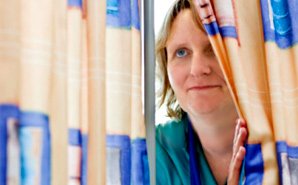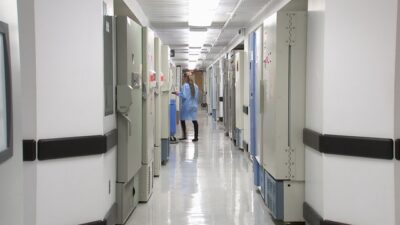 iStock | AlexRaths
iStock | AlexRaths
Perhaps the doctors you work with seldom, if ever, show you their appreciation. It could be that it’s simply not their style, but chances are that deep down they’re more appreciative than you can imagine—of you, your nursing skills and the valuable role you play on their healthcare team. Not buying it? These stories, volunteered by doctors who genuinely delighted in sharing them, are sure to erase any doubt and show you that doctors do appreciate nurses.
Humble Brilliance
“In our training, doctors are so separated from nursing staff that we don’t really get to appreciate their input until we’re independently practicing,” says Anita Swamy, MD, a pediatric endocrinologist and the medical director of diabetes at La Rabida Children’s Hospital in Chicago. “I’ve learned so much from the nurses I work with—both professionally and personally. I feel that in the field of medicine, they’re the humble, brilliant people.”
Swamy explains that prior to her arrival at La Rabida, the nurses were running the pediatric diabetes program without a medical director, and doing it very well.
“Some of them have been doing this much longer than I have, but they still come to me to ask me for advice, even though they likely already know the answers,” says Swamy. “That’s an incredible personality trait, and it has taught me to be a little more humble. And, as far as diabetes management goes, my knowledge has been significantly enhanced by exposure to the nurses and their ways of practice. Each of us has a role, and each role is equally important.”
Dr. Swamy thanks you, Rosemary, Andrea, Anita, Cathy and Kate.
Eyes and Ears
Patricia Abboud, MD, a pediatric intensivist at Dayton Children’s Medical Center in Dayton, Ohio, says she can’t isolate just one story about nurses because the ones she works with are all wonderful. She writes:
I am very grateful for ALL the Pediatric ICU nurses I work with. Their level of skill, professionalism, empathy and compassion is exceptional. I rely on their assessments HEAVILY to manage the most critically ill patients in our hospital. In our institution we don’t have in-house attending 24 hours a day, seven days a week. That said, I rely on the nurses’ assessments and interpretations of the patients when I am not able to be at the bedside. I often refer to them as my “eyes and ears.”Â
They are a very confident and outspoken group, and true patient advocates. We may “nationally” honor our nurses one week a year, but I am thankful every day of the year for such a spectacular group of professionals. They make my call easier and I know my patients are receiving the best care Dayton Children’s can offer. Kudos to the PICU nurses of Dayton Children’s!!!
Tragedy Averted
A misplaced decimal point made Stephen Herman, MD, a clinical associate professor of psychiatry at Weill Cornell Medical College in New York City, realize why good nurses are invaluable members of healthcare teams. He recalls the incident clearly:
“I had been up all night, on call, and the next morning I was making rounds, visiting some very sick infants,” he explains. “I wrote an order on a chart for an antibiotic, but I didn’t put the decimal in the right place, and had the nursing staff given what I ordered, we probably would have lost the baby if not caused severe damage to the kidneys or other organs.”
A nurse on the floor picked up on the mistake and approached Herman about it, and he corrected the order. “She saved my behind,” he says with relief and a great deal of gratitude. He adds that this was so long ago that he doesn’t remember the nurse’s name, but acknowledges that situations like this likely are still common today, and that the knowledge and experience of nurses can save the day.
Efficiency in Ambulatory Practice
The role of nursing in an office setting is generally perceived as being quite straightforward: The nurse brings patients into the examining rooms, prepares them for being seen, takes their vital signs and lets the doctor know they’re ready to be seen. Robert Rowley, MD, a practicing family physician with Hayward Family Care in the San Francisco Bay area, says he appreciates his nurse because she goes farther than that.
“She anticipates what I might need,” he explains. “If a patient has recently been discharged from hospital, she’ll obtain the hospital records because she knows I’ll want to see them. If blood work was ordered, she’ll ensure the results are in the chart. So the things I need are right there, and that is very valuable because I don’t have to interrupt a visit with a patient to obtain those things. I really appreciate that good-quality nursing.”
Tribute in Verse
While on a medical mission in the mountains of Peru, Michael Gallant, MD, FACS, a pediatric plastic surgeon at All Children’s Hospital in St. Petersburg, Fla., was inspired to write a poem about nurses. Although the poem is about all nurses, the inspiration came from one nurse in particular—a nurse who stayed up all night with a small Peruvian child who was having an extremely difficult time recovering from anesthesia.
“It was about nine at night and we were sitting in the recovery room, tired,” Gallant explains. “I heard this singing—the most beautiful, very quiet singing—and I turned around, and it was one of our recovery room nurses. She was singing to the baby she was watching. It took him all night to recover from the anesthesia, and the nurse stayed with him all night, and she basically saved his life. The next morning she was still there, and the little fellow was doing great.”
“The Nurses I Know”
I am not a nurse, but my friends are nurses.
I like to see the world through their eyes.
Through their eyes, the world is full of people with bad luck and pain,
Full of people with bad pain and heartaches.
Their first question, always, is: how can I help?
The nurses I know show up for work with their hearts and brains engaged,
They rarely sit down. Their feet rarely give out.
Their brains keep working long after my brain wants to retire.
The nurses I know sometimes sing to their patients while they watch their vital signs,
And they don’t go home to sleep until they’re sure that their patients are safe.
To these nurses it is never true that nothing can be done.
To them there is always something good to do.
The nurses I know are not nuns, though most are religious and they all see the big picture.
Clearly they are not teachers, but from them I have learned much about what is important in life.
They are not comedians, but they make me laugh often (usually at myself).
They are not cops, but they manage to keep my behavior in line—most of the time.
There are days when clarity eludes me.
There are days when I am less of a man than I would like to be.
And then…after a good case…there is a moment of perfect clarity.
At that moment, my postoperative prayer for my nurses and myself is simple:
Oh God, thank you for letting us do this work.
—Michael Gallant, MD
Huanuco, Peru
January 1999
















